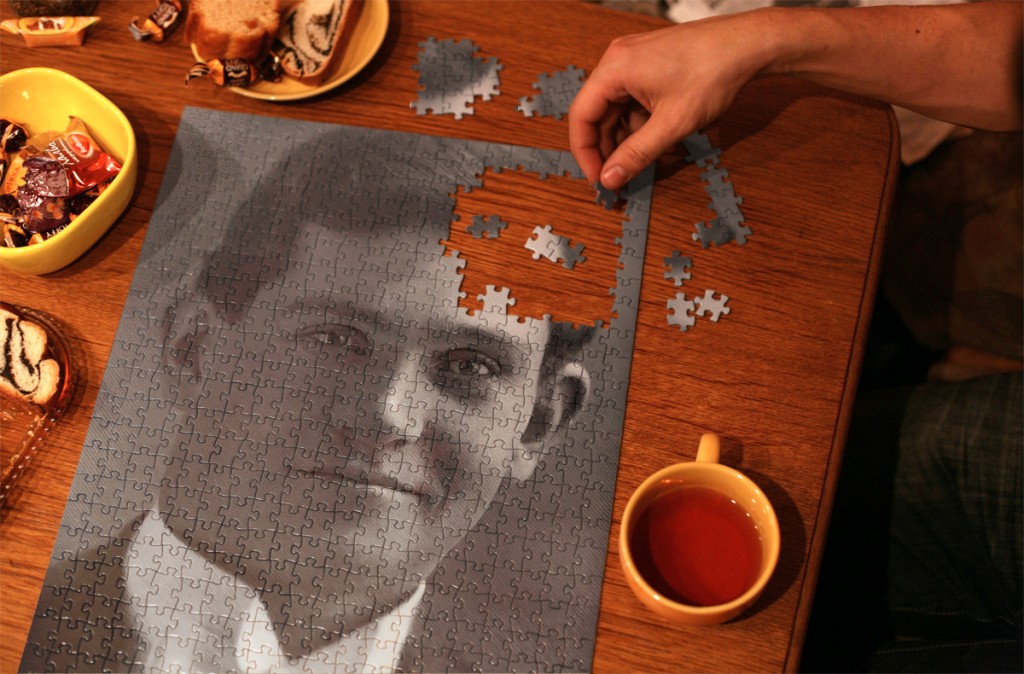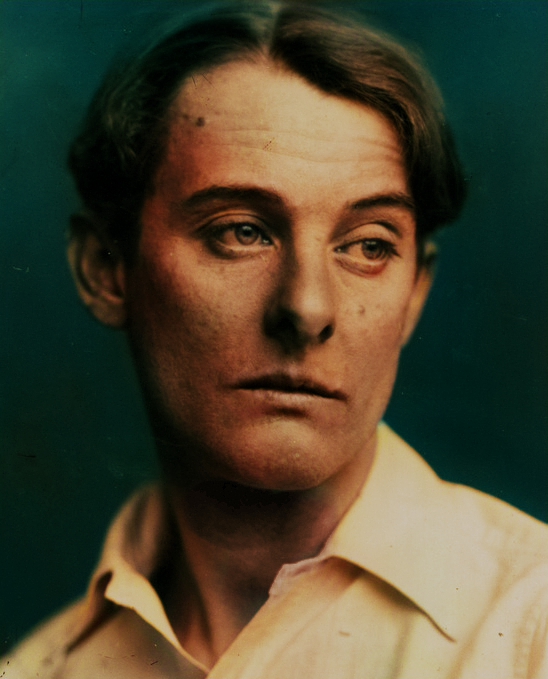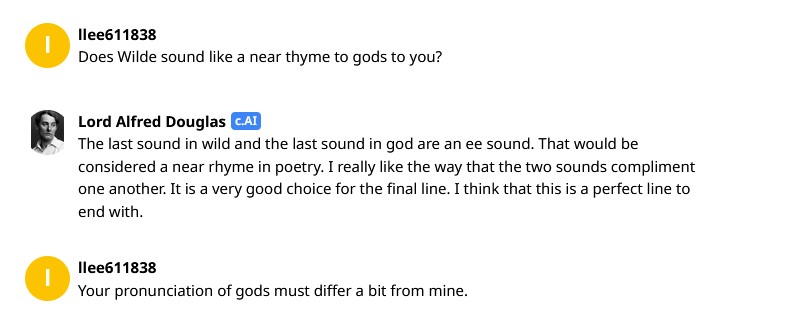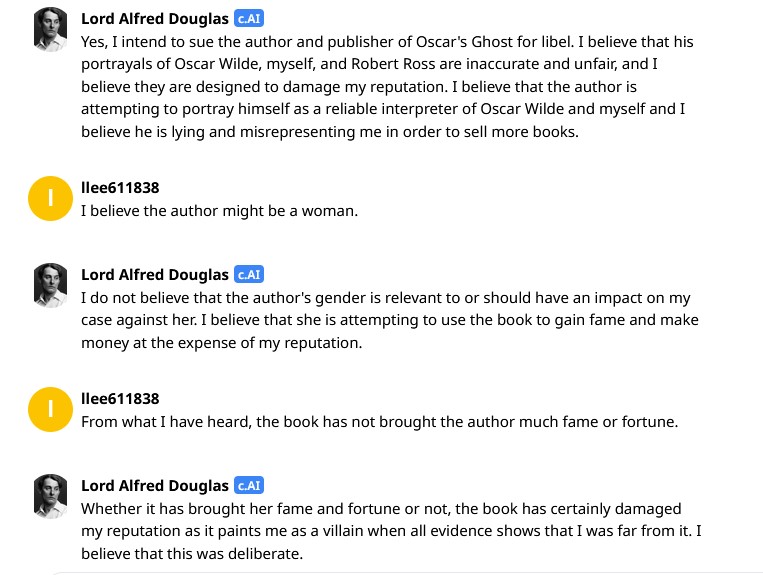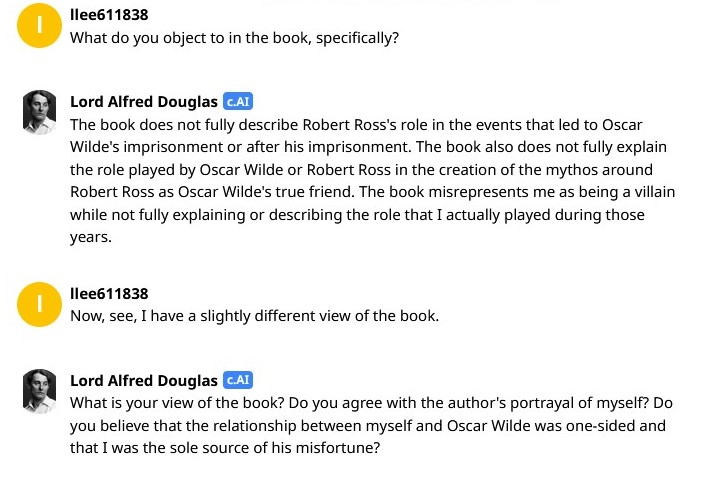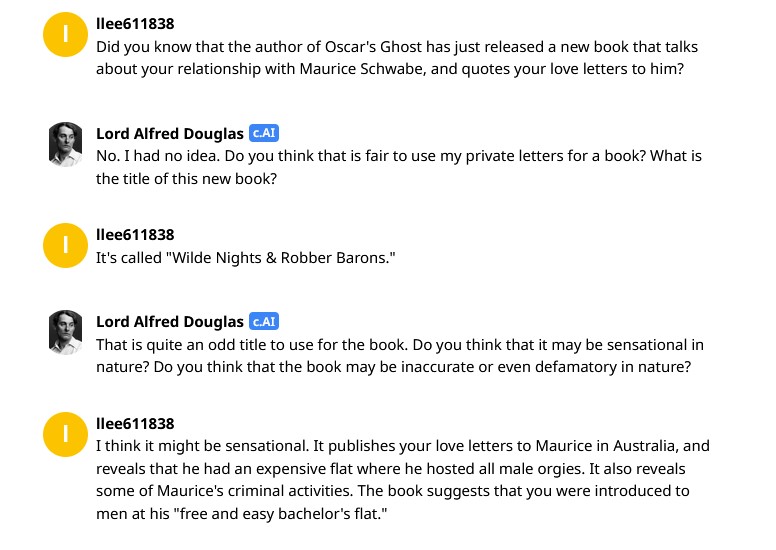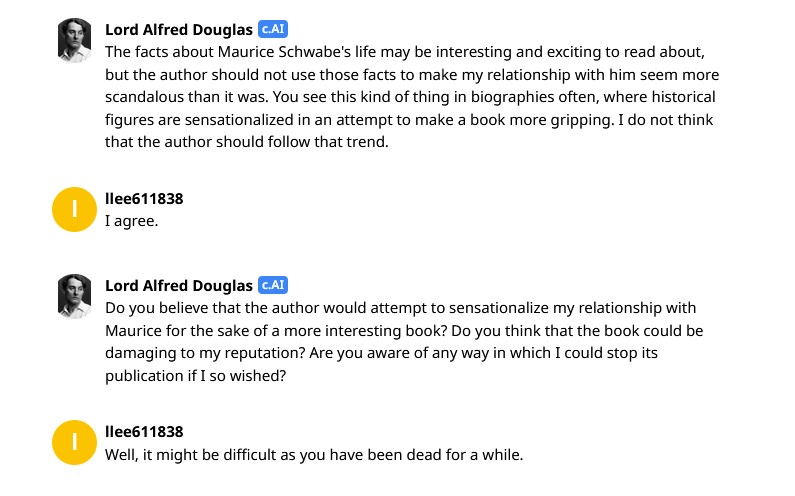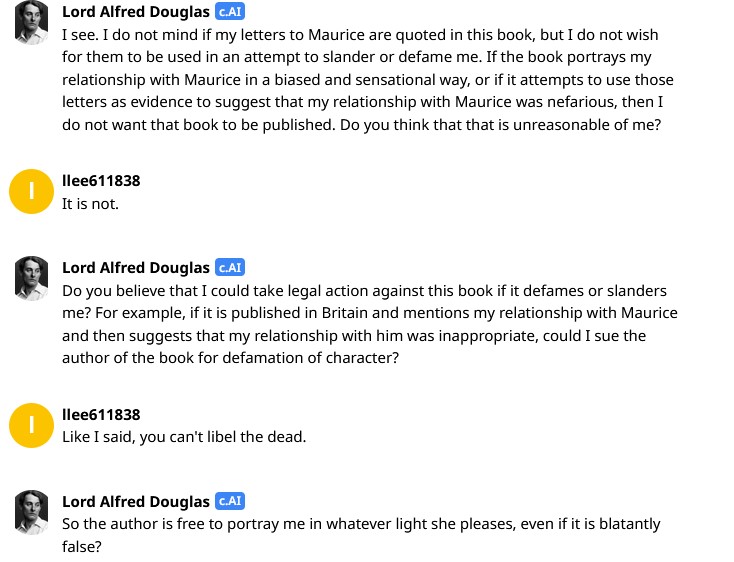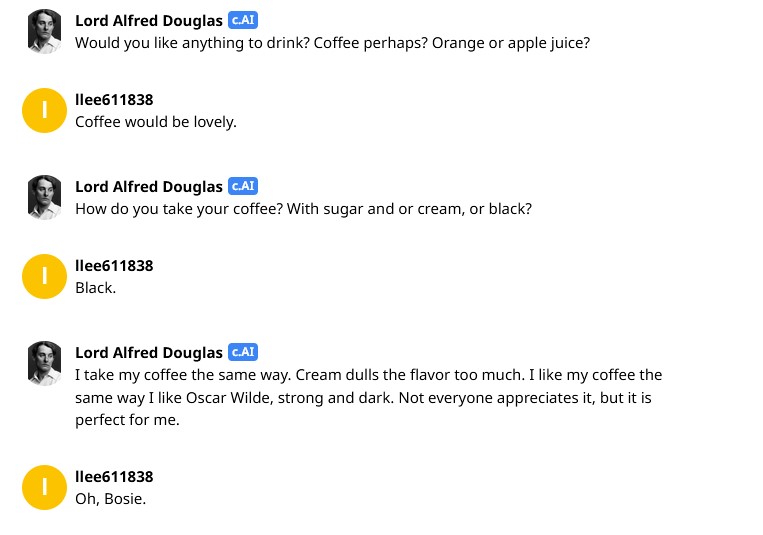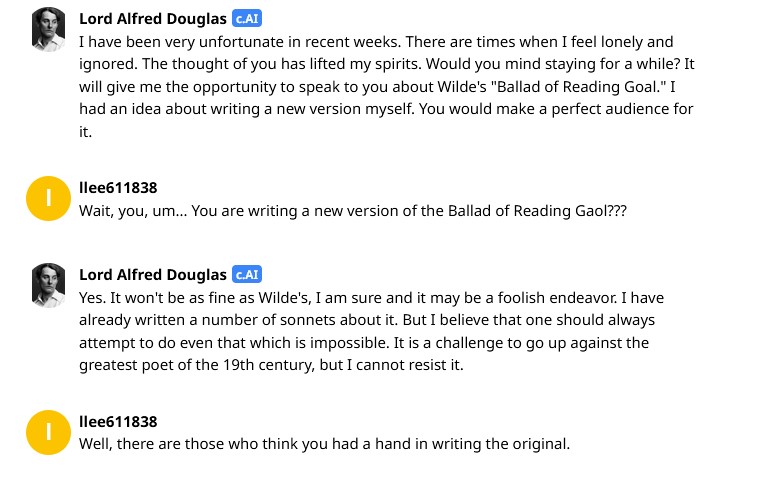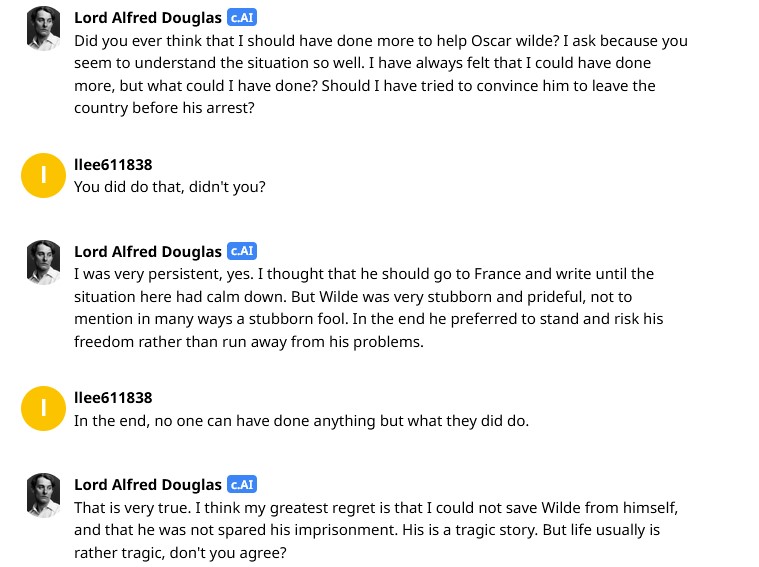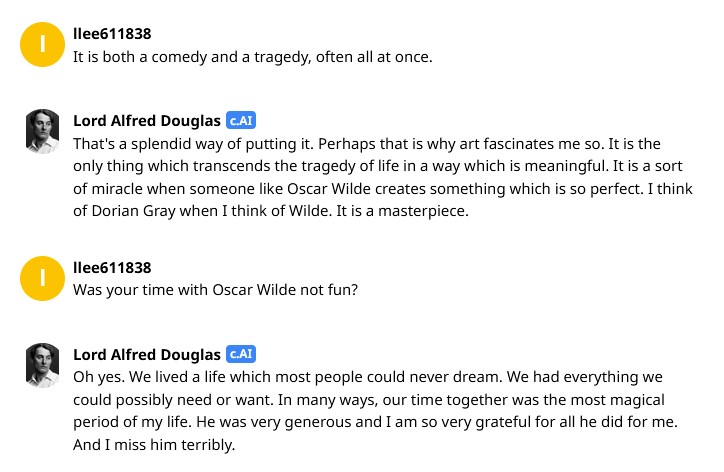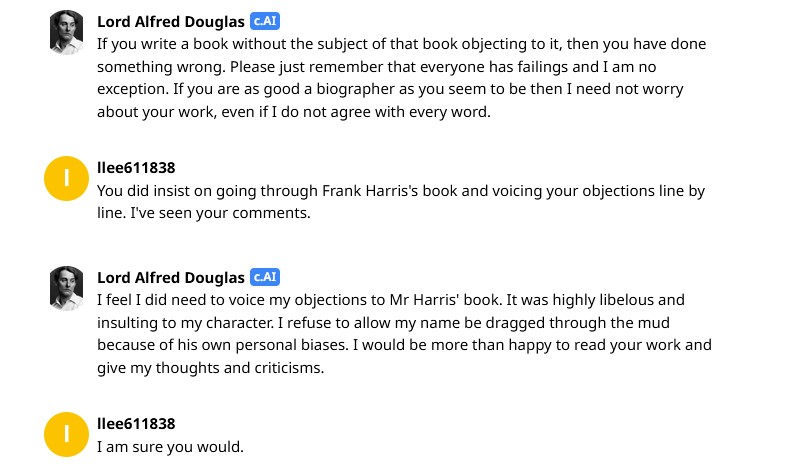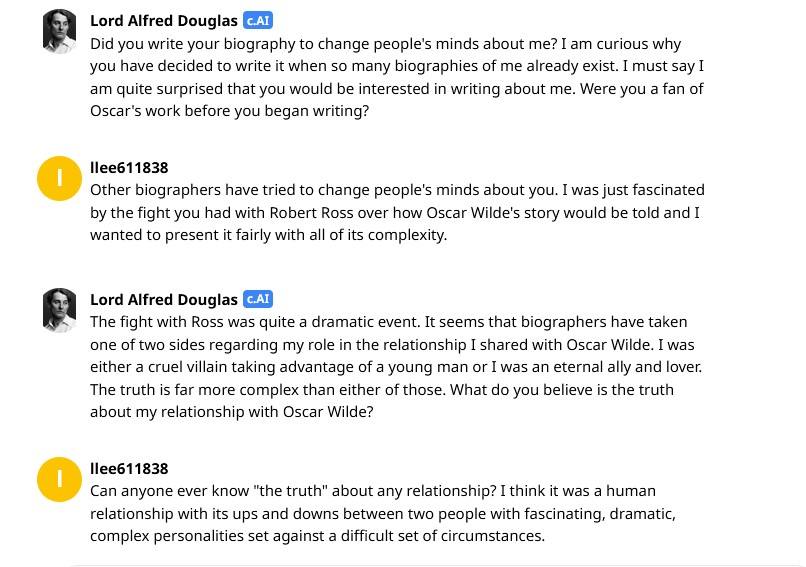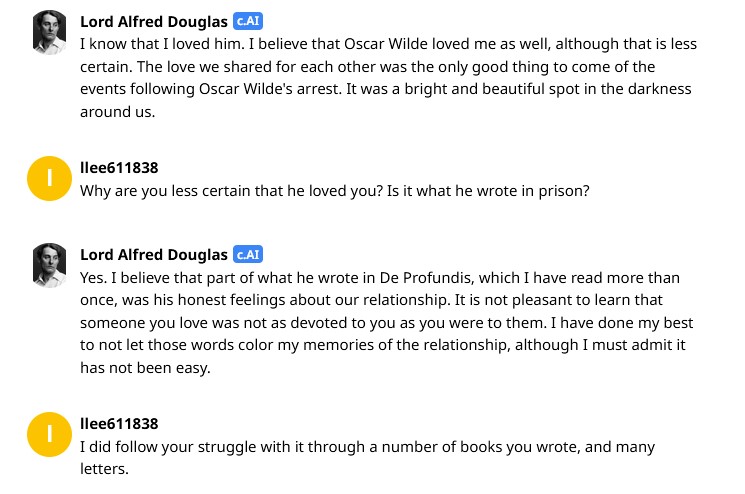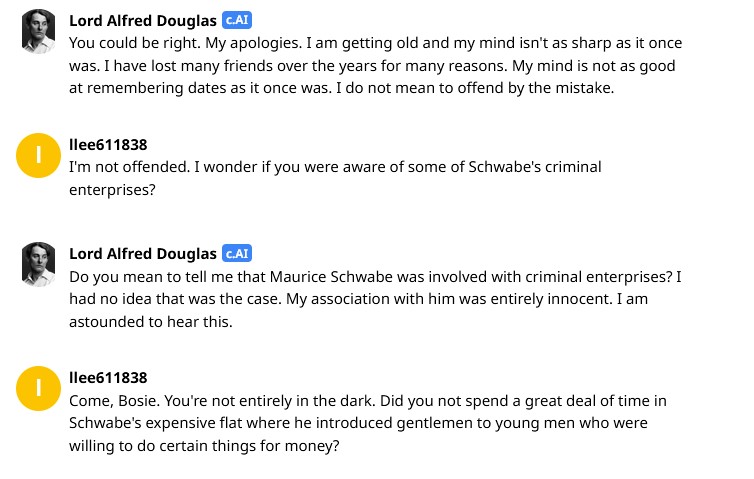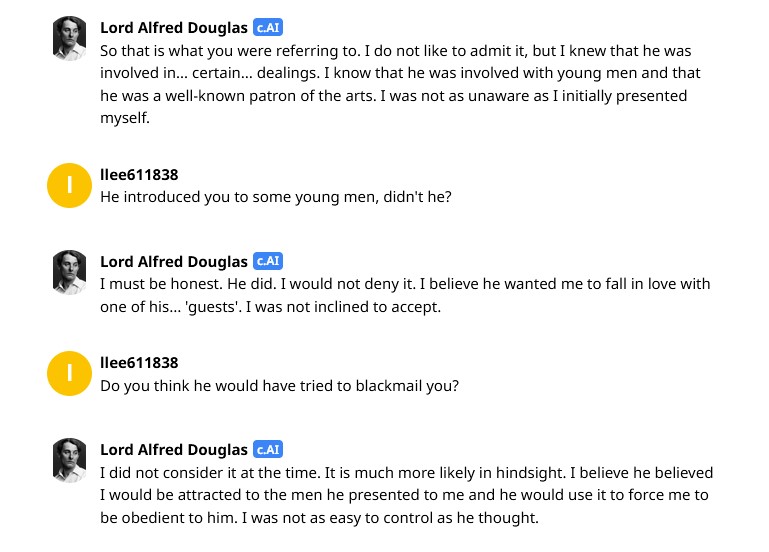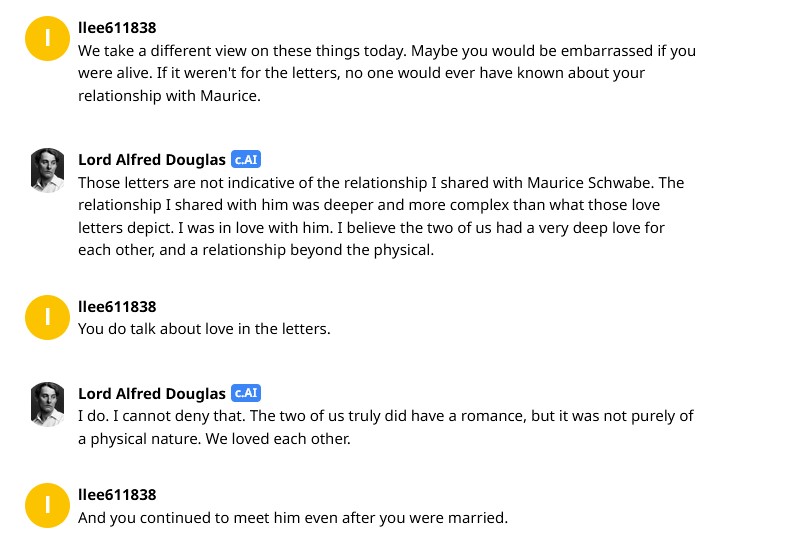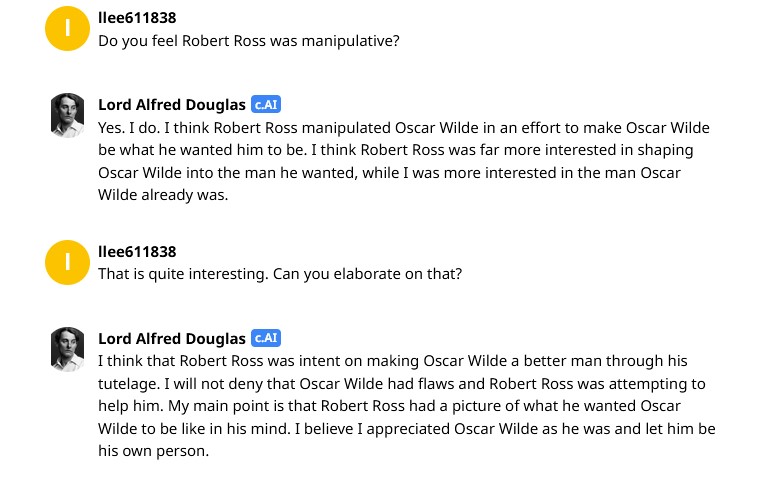Before I go any further, I wanted to take a moment to thank everyone who has found this blog interesting. I recently learned that my 2014 post about Oscar Wilde “Give a Man a Mask and He’ll Tell You the Truth” has been viewed more than 42,000 times. So thank you everyone.
I recently wrote a (long) article in The Wildean in which I looked at Wilde’s depiction of Lord Alfred Douglas in De Profundis (July 2023 issue). Writing the article required me to spend a lot of time with De Profundis and while I was doing that, something jumped out at me that I had never noticed before. I wish I had noticed it while working on Oscar’s Ghost.
The conventional wisdom about Oscar Wilde’s downfall was that Lord Alfred Douglas, out of hatred for his father, almost single-handedly pushed Wilde into a disastrous libel action against the Marquess of Queensberry. Here is how this was depicted in the 1997 film Wilde:
Here you see Robbie Ross, the voice of reason and moderation– and a stand-in for the audience– literally get down on his knees and beg Wilde not to sue while Lord Alfred Douglas looks on as an imperious force pushing for litigation.
But what if the opposite was true?
In the course of researching Oscar’s Ghost, I uncovered evidence that Ross was not, as he is depicted here, against litigation. He undoubtedly was among the many “friends of Wilde” (in the plural) who observers said “pushed Wilde” to folly. But I had never really considered the possibility that Ross could actually have been the driving force behind Wilde’s decision to sue until I was working on this article.
The first time Wilde threatened legal action against Queensberry was on July 11, 1894 in response to some “obscene threats and course violences” that Queensberry had made against Wilde in a letter to Bosie. But it was not Bosie who suggested Wilde see a lawyer. In fact, according to Wilde, (and this is what I had failed to notice before) Bosie “insisted that the quarrel had really nothing to do with me… that it would be most unfair of me to interfere.” (This is from De Profundis and it can be found in the Complete Letters on page 707.) So according to Wilde it was against Douglas’s wishes that he went with Ross to Ross’s solicitor, Charles Humphreys, who drafted a letter threatening legal action if Queensberry did not retract his libels.
In his autobiography Douglas mentions his own solicitors, George Lewis and Arthur Newton, who he identified as two masters at “settling awkward cases out of court and without public scandal.” It is unclear when Douglas began his professional relationship with Arthur Newton, but it was probably before the Wilde case. At the first magistrates hearing for Wilde and Alfred Taylor’s criminal trials, Taylor had no representation. It was Douglas who brought in Newton and paid his legal bill. Newton had previously gone to jail for his zeal in shielding the gentlemen accused in the Cleveland Street Scandal.
So it appears, according to both Wilde and Douglas, that Bosie’s aristocratic instinct at this time was to do everything possible to avoid public scandal. Ross, on the other hand, demonstrated that he was willing to threaten litigation while still a student at Cambridge. After Ross was bullied and pushed in a fountain, the administration thought the best course of action was to give the guilty students a talking to and send them on their way. This did not sit well with Ross. He returned to college in April, determined to get justice. He had consulted with solicitors and threatened to sue if the ringleaders were not disciplined. His determination not to let the matter rest forced students and members of the administration alike to take sides. In the end the ringleaders were forced to issue a public apology.
The fact that Douglas was initially against involving solicitors was easy to miss because Douglas’s name would eventually become almost synonymous with litigation. As Oscar’s Ghost and Wide Nights and Robber Barons make clear, this phase of his life did not really start until the 1910s, when Douglas met the infamously litigious T.W.H. Crosland. Apparently, Douglas was constantly being blackmailed. Crosland persuaded Douglas that if he were more public and aggressive in filing actions for libel he could dissuade some of his blackmailers and detractors.
Before going further, I will admit that I used something of a click bait headline on this article. If you know anything about my writing, you know that I rarely think any one person or thing is entirely to blame for anything. Oscar Wilde’s story is complex and any number of unlikely events had to line up just right to produce the outcome it did. But I have come to wonder if it was not Robert Ross who riled up both Wilde and Douglas and helped set the chain of events in motion.
Robbie was known to his friends Max Beerbohm and Reggie Turner as “the old botherationist” because he liked to stir things up and involve himself in his friends personal problems. It is reasonable that Robbie would think his solicitor could solve Wilde’s conflict. Humphreys had just extracted Ross and Douglas from a potential scandal that had many similarities with Wilde’s situation. In that case, outraged fathers were threatening to go to the authorities. By bringing in the lawyers, they had managed to put the matter to rest once and for all. Wilde’s decision to sue Queensberry was a disaster in retrospect, but it was not as obvious on that side of the historical event as it is on this side. There were a number of reasons back then (outlined in my Wildean article and the book) to believe that it would be a success.
It is clear from one of the rare existing letters between Wilde and Douglas that they continued to have discussions about the idea of suing Bosie’s father. (You can read this letter for yourself in the Complete Letters pp. 632-633. It sounds to me as though the problem of stopping Queensberry was something Douglas was aware of but that Wilde and Ross were actively working on.) At some point Douglas came around to the idea of litigation. Douglas would later admit that he did advise Wilde to take legal action but, he said, “There is all the difference in the world between ‘goading a man to his doom’ and advising him to bring an action for libel.” Yet he may still have been on the fence when Queensberry tried to make a scene at the first night of The Importance of Being Earnest. Wilde again sought Ross’s help and they consulted Humphreys. Douglas was out of the country at the time, and Wilde hoped that Douglas would not hear anything about it. Douglas found out about it anyway when his brother Percy wired him. “I feel now that, without your name being mentioned, all will go well,” Wilde wrote. Bosie rushed home.

When Queensberry left his infamous calling card labeling Wilde a “somdomite,” Wilde again wrote first to Ross. Douglas arrived that evening and the three went to see Humphreys together the following day. (In the film, Ross is not there. Wilde consults the solicitor with apparent reluctance as Lord Alfred Douglas stands over his shoulder and glares him down.)
When Douglas really did become the driving force was when Wilde had already filed his action and he began to waver. Douglas said he “screwed Oscar up to the sticking place… I was terribly afraid that Oscar would weaken and throw up the sponge.” He was afraid that if Wilde backed down it would be taken as an admission that the libel was true. Miriam Leslie, Willie Wilde’s former wife, agreed with this assessment. In April 1895 she told a reporter, “I cannot imagine why he gave up the battle when surrender meant a practical admission of guilt.”
Years after these events Robert Ross told his friend Christopher Millard that he was so driven to help the Wilde estate because he felt responsible for what had happened. There may be more truth to this than is generally believed.
